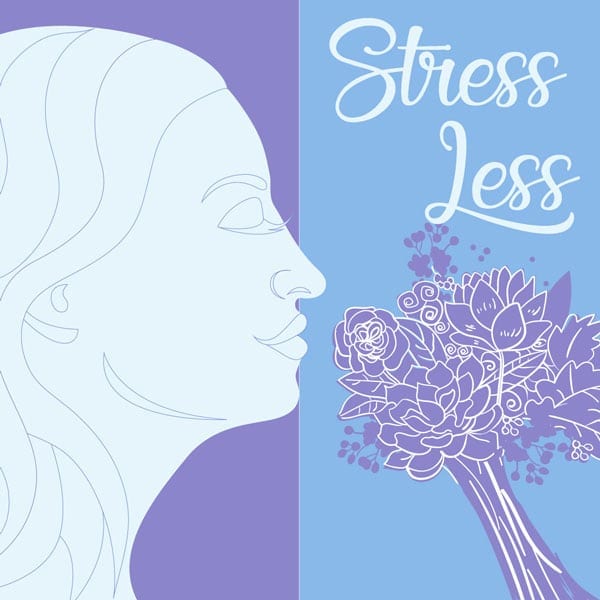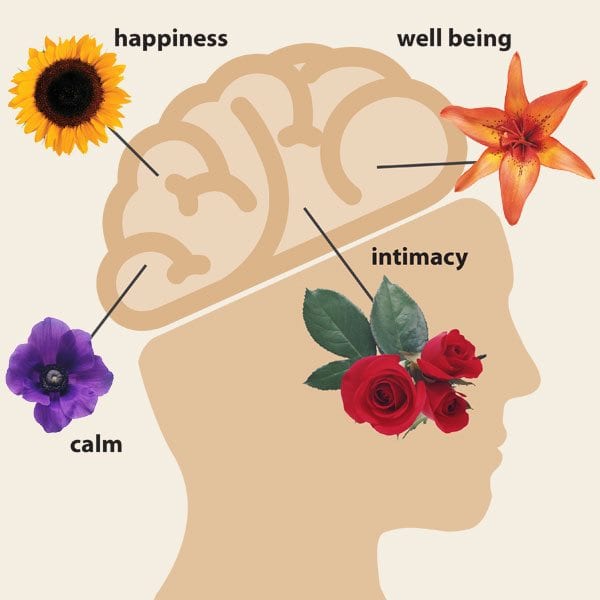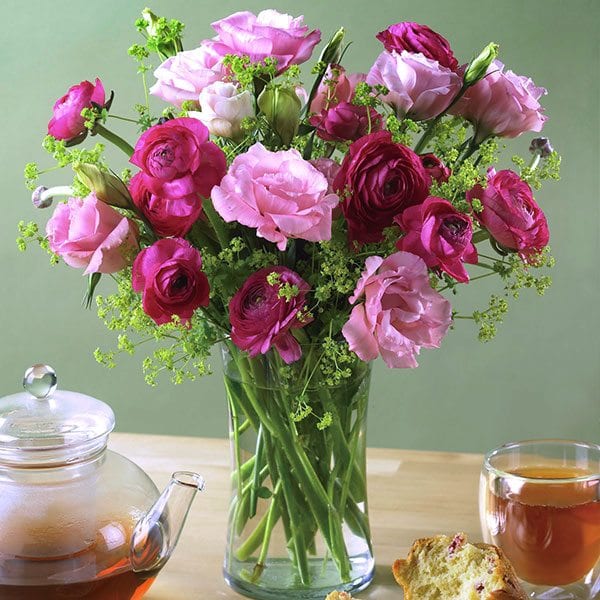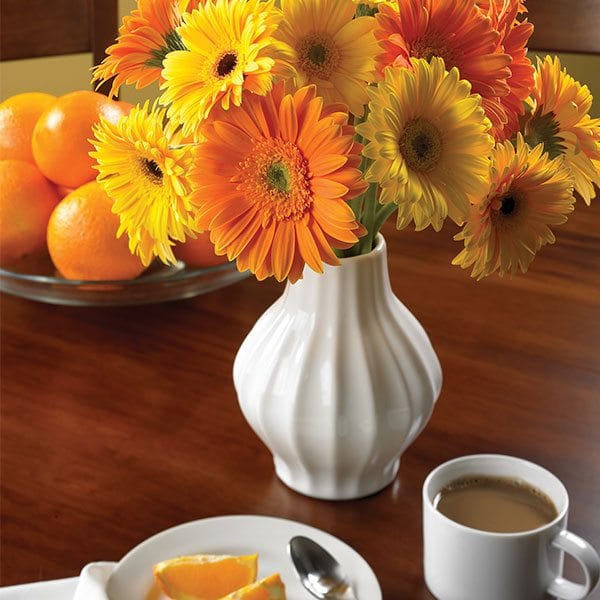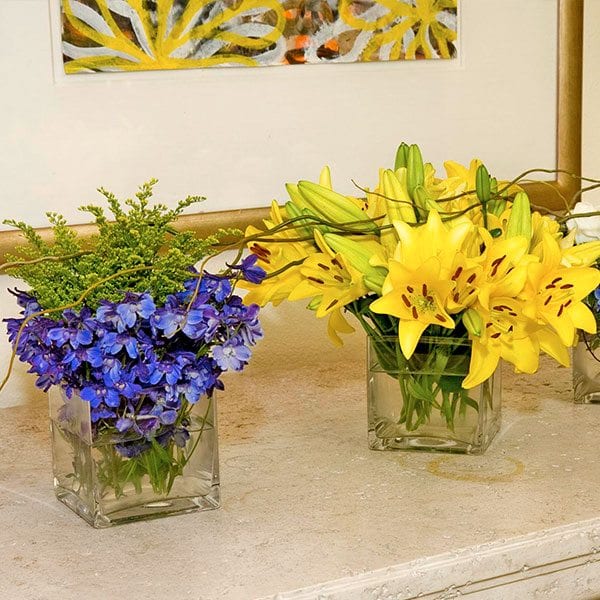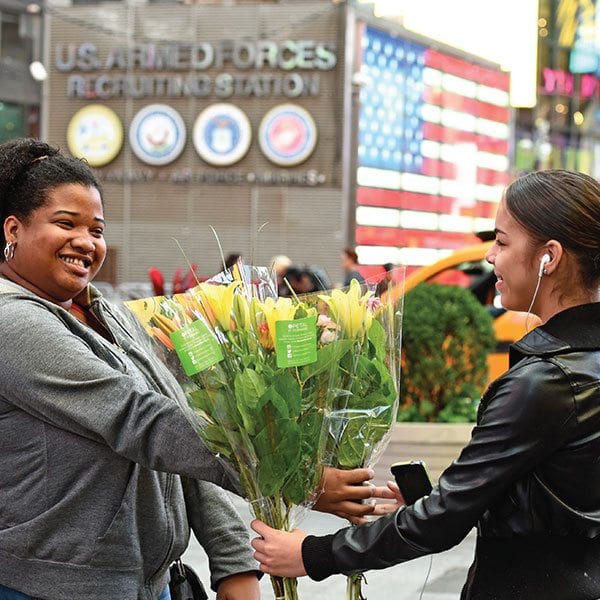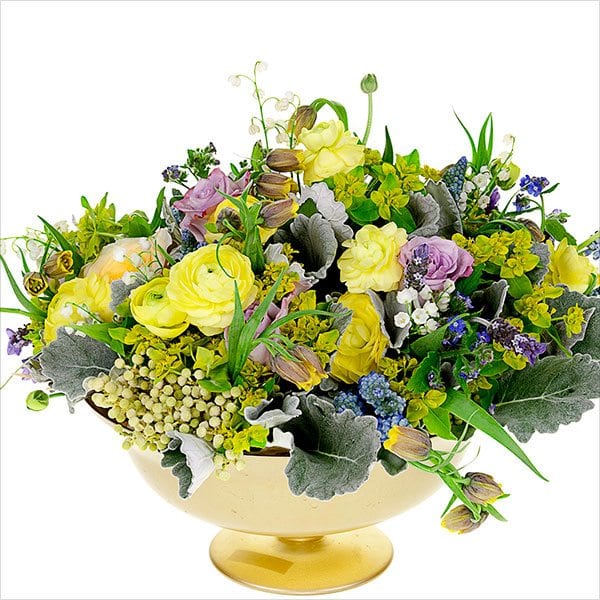 Rutgers: Flowers Boost Seniors’ Well Being
Rutgers: Flowers Boost Seniors’ Well Being
Everyday, America’s aging population – 40 million and rising – faces the challenges of growing older, including depression, memory loss and social withdrawal. As a concerned nation, we are continually exploring new means to ease daily-life anxieties. A six-month behavioral study by Rutgers, The State University of New Jersey, on the health effects of flowers on senior citizens, demonstrates that flowers ease depression, inspire social networking and refresh memory as we age.
“The results are significant because as our nation grows older and life becomes more stressful, we look for easy and natural ways to enhance our lives – and the lives of our aging parents,” said Dr. Jeannette Haviland-Jones, professor of psychology and director of the Human Development Lab at Rutgers. “Now, one simple answer is right under our noses.”
This research follows a study conducted in 2000, which links flowers to greater happiness and life satisfaction in women. In 2001, Rutgers set out to explore the effects flowers would have on senior citizens, who experience different living situations and greater life changes.
Prevention in a Bud, Not a Bottle
More than 100 seniors participated in the Rutgers research study, in which some received flowers and others did not. The results shed new light on how nature’s support systems help seniors cope with the challenges of aging. The results are as follows:
- Flowers Decrease Depression. Study participants showed a significant increase in happiness and positive moods when flowers were present.
- Flowers Refresh Recent Memory. Seniors performed higher on everyday memory tasks and experienced enriched personal memories in the presence of flowers.
- Flowers Encourage Companionship. Seniors who received flowers re-engaged with members of their communities and enlarged their social contacts to include more neighbors, religious support and even medical personnel.
“Instinct tells us that flowers lift our spirits, but, their effects on seniors are especially profound, if not surprising,” said Haviland-Jones.
New Evidence Sprouts Up
Specifically, 81 percent of seniors who participated in the study reported a reduction in depression following the receipt of flowers. Forty percent of seniors reported broadening their social contacts beyond their normal social circle of family and close friends. And, 72 percent of the seniors who received flowers scored very high on memory tests in comparison with seniors who did not receive flowers.
“Happier people live longer, healthier lives and are more open to change,” said Haviland-Jones. “Our research shows that a small dose of nature, like flowers, can do a world of wonder for our well-being as we age.”
Methodology
The Flowers & Seniors Study is the second floral research project conducted by Jeannette Haviland-Jones, Ph.D., professor of psychology, Project Director, Human Development Lab at Rutgers. Dr. Haviland-Jones is a psychologist and internationally recognized authority in the role of emotional development in human behavior and nonverbal emotional signals and response. In 2000, Haviland-Jones completed the first phase of her research on the emotional impact of flowers on women. The Society of American Florists worked in cooperation with the Rutgers research team, bringing its expertise of flowers to the project.
The Flowers & Seniors Study examined senior citizens’ levels of depression, social contact and memory with and without the presence of flowers. Participants were placed in one of four groups, each receiving flowers at different intervals. A series of three interviews was conducted throughout the six-month study, to measure changes in participants’ moods and behaviors. Participants also kept personal daily logs to record social contacts and were given a memory test at the conclusion of the study.
Study Participants
The study consisted of 104 participants (94 women, 10 men), ranging in ethnicity, from ages 55-93. To prevent skewed or biased results, participants did not know the purpose of the study.
Interviews
- Participants were given an initial baseline interview to obtain data on moods, health, social support, life satisfaction and demographic information.
- A second and third interview followed to measure changes in feelings and behaviors.
- After the third interview, seniors were tested on everyday personal memories, including their memories of the flowers, of daily social contacts (based on the logs they kept, see below), and on recent social events (also taken from daily logs). Points were given based on the accuracy, specificity and detail of the seniors’ answers.
Flower Deliveries
Participants were randomly placed into four groups. Each group received flowers at different intervals in the study, which they were told were thank-yous for participating. Results were based on how often the participants in each group received flowers (if at all), at what point in the study they received flowers, and any changes in mood and behavior that ensued. The groups included:
- The Early group: Received a bouquet once – after the first (baseline) interview only. This group had the flowers in time for the second interview.
- The Late group: Received flowers once – before the last interview only. This group had the flowers in time for the third interview.
- The All Flowers group: Received flowers twice – before both the second and third interviews.
- The No Flowers group: Received flowers only after the study was completed. They had no flowers during any of the interviews.
Evaluation
Rutgers researchers tested participants for changes in their depression, social contact and memory. Noting which flower group they were in, the researchers used the following methods for measurement:
One-on-one interviews – Seniors were asked questions (see list of questionnaires below) about moods and behaviors three times during the study.
- Daily logs – Participants kept journals of daily contacts with friends, family and other supporters such as medical people, neighbors, household helpers and religious support.
- Memory tests – Seniors were tested on everyday personal memories, which were coded according to the degree of detail each participant gave about the item or event they were asked to describe.
Questionnaires
The following questionnaires were asked of participants: Izard’s Differential Emotional Scale, Diener’s Life Satisfaction Scale. The standard social support measure, social contact logs and memory tests also were evaluated.
About the Researcher
 Jeannette Haviland-Jones, Ph.D., is a professor of psychology at Rutgers University and the director of its Human Emotions Lab. An internationally recognized authority on the role of emotional development in human behavior and nonverbal emotional signals and response, Haviland-Jones has published several books on adolescence and emotion and is co-editor of the Handbook of Emotion, for which she won a Critics Circle Award.
Jeannette Haviland-Jones, Ph.D., is a professor of psychology at Rutgers University and the director of its Human Emotions Lab. An internationally recognized authority on the role of emotional development in human behavior and nonverbal emotional signals and response, Haviland-Jones has published several books on adolescence and emotion and is co-editor of the Handbook of Emotion, for which she won a Critics Circle Award.
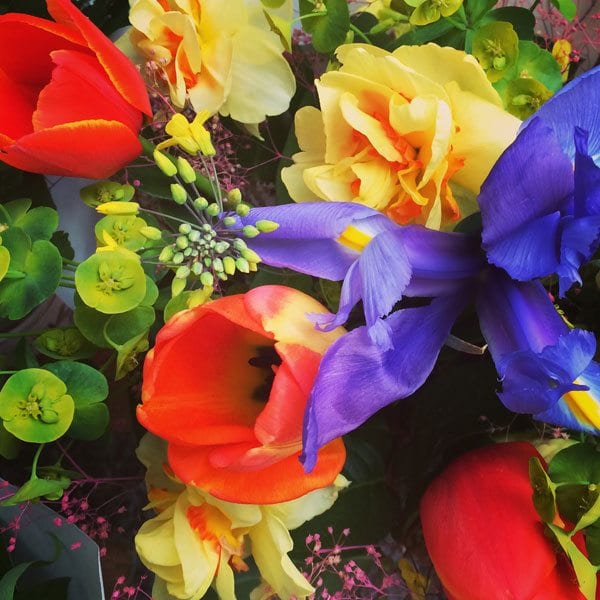
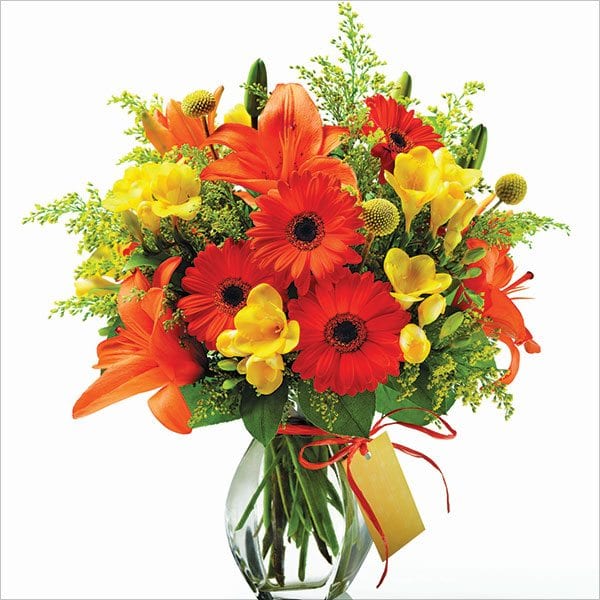

Aboutflowers.com is hosted by the Society of American Florists, the U.S. floral industry trade association. Click below to find a local SAF member florist to send flowers, roses and gifts for delivery.

